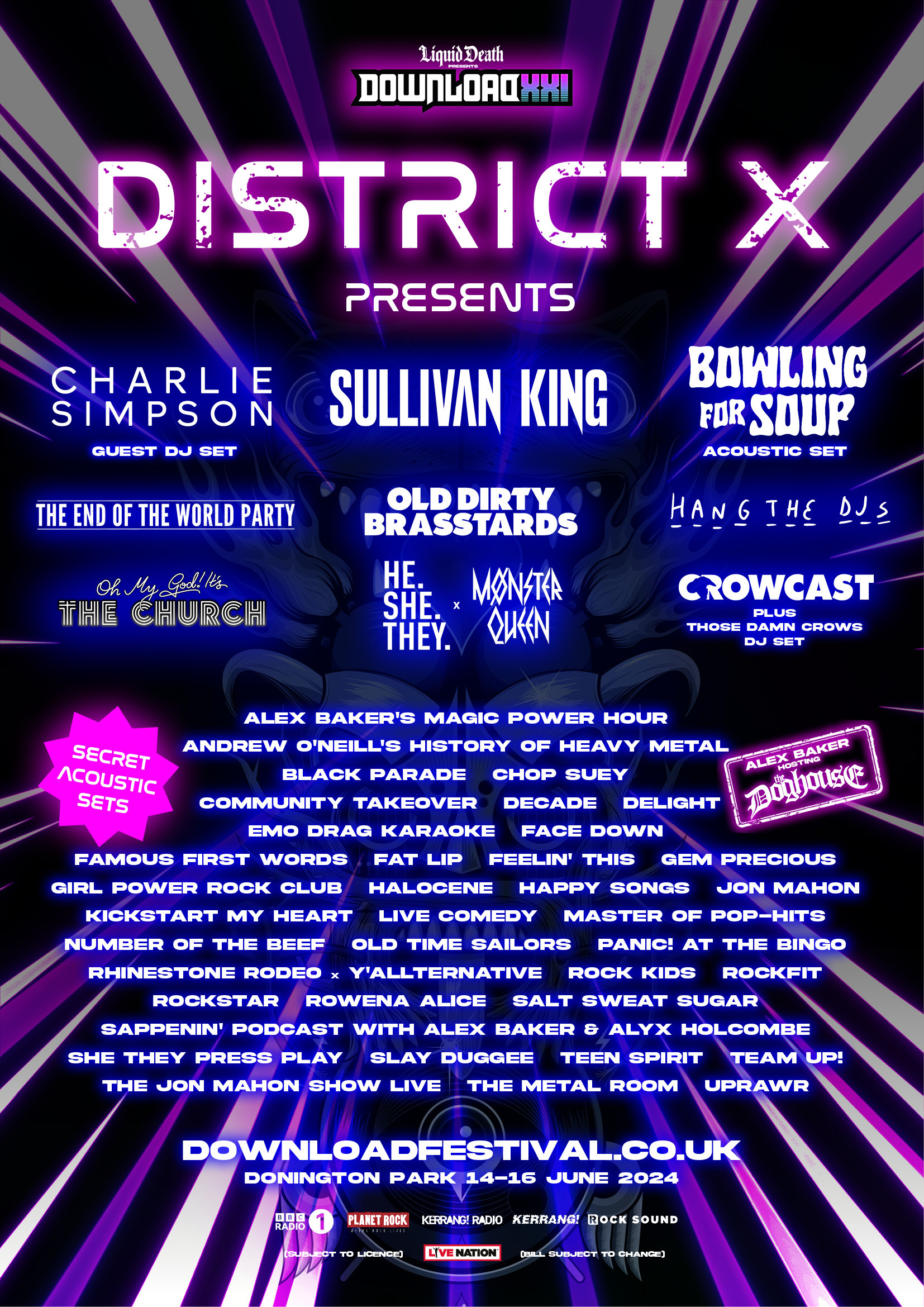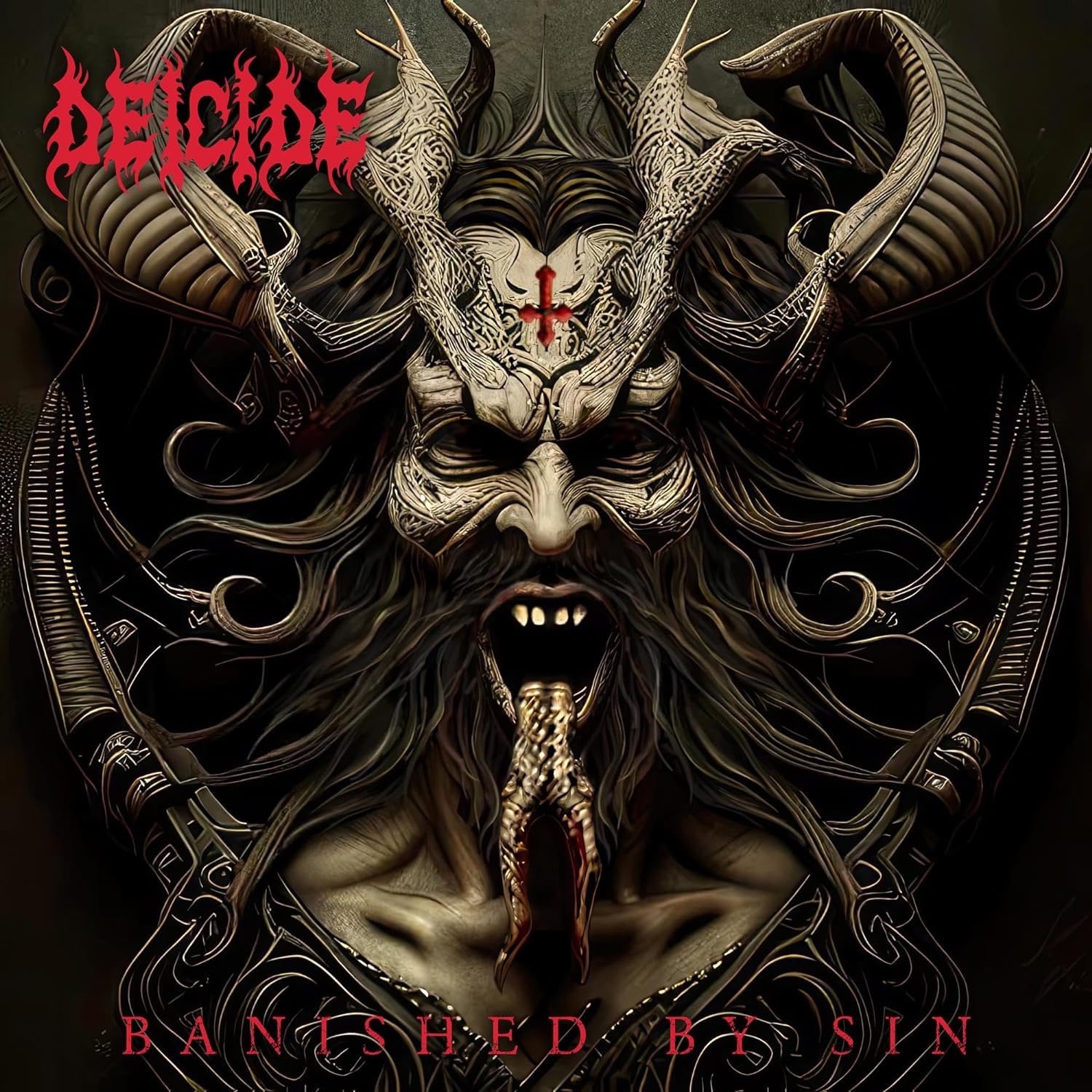
Although comparatively few bands make the transition from extremity to mainstream accessibility, those that do inevitably find themselves trapped between the expectations of fans who dream of a return to sweaty club gigs, and the requirements of an ever-expanding fanbase. It’s not an easy path to walk, and it can result in a relentless focus on each new release, with scabrous criticism and accusations of “selling out” never far behind. While it is hard to imagine anyone accusing Slipknot of selling out and making it stick (lest we forget, this is the band who, with Iowa, punished the charts with the heaviest number one album of all time), the band have diversified their sound over the years, and while their foundation is still heavier than a ton of bricks, recent releases have shown a flair for both melody and nuance that has helped to ensure the band’s longevity.
And so to The End So Far, the band’s seventh album and their final act on Roadrunner, their home since 1998. Very much an album of transition, it not only marks the end of an era for the band, but also the first recorded appearance of percussionist / backing vocalist Michael Pfaff, who replaced Chris Fein in 2019. As with 2019’s We Are Not Your Kind, The End So Far sees the band continue to explore a variety of different textures, while Corey has compared it to a heavier take on 2004’s Vol 3, a comparison that is at least partially helpful.
The album opens on a very different note to anything the band have done before, with the beautifully produced Adderall. A mid-paced and melodic piece of music, it draws together elements of Fragile-era NIN, Stone Sour and Screaming Trees, although threat lingers in the dark guitar lines that writhe beneath the beguiling, psyche textures the band deploy. A surprisingly accessible opener, it’s a bold move from a band that has made a career out of bold moves, although metal is never far from the surface, as the blistering The Dying Song (Time To Sing) so ably demonstrates. Arguably the closest the band have come, certainly since Iowa, to recapturing the frantic energy of their gazillion-selling debut, The Dying Song feels like a contract to the faithful, who may have found themselves initially bemused by the melancholic beauty of the album’s opening track. Up next, The Chapeltown Rag offers drum and bass elements, crushing riffs and the sort of melodic chorus at which the band have long excelled. Having sated the appetite of those looking for a quick fix of metal, the band take a sizeable step to the left with the eerie Yen, a downtempo number with a moody vocal and uncomfortable atmosphere. Disturbing noise feeds into the scything Hivemind, a more typical Slipknot number, before the first half wraps up with the ferocious Warranty, as Corey screams “isn’t this what you came here for?” over and over.
Opening the album’s second half, the atmospheric Medicine For The Dead sees the band diversify their sound further. Still heavy, it’s a slow burning piece that slowly evolves over the course of its six-minute run time, emerging as one of the album’s most interesting and engaging tracks in consequence. Horror movie textures provide the entrance to Acidic, a churning, dark-hearted number with a surprising Alice In Chains undercurrent. It’s another example of Slipknot pushing the boundaries of what has gone before, and it proves devastatingly effective. In contrast, the scratchy Heirloom is a taut, Slipknot stomp designed to maintain the pace in anticipation of the monstrous H377, which features gang chant vocals and dirty, thuggish riffing. Monolithic in its delivery, H3777 is the sound of crippling paranoia set to music, and it neatly opens the door for the delirious psyche-trip of De Sade. Another track that showcases this increasingly adventurous band exploring the hinterlands of their influences, it progresses from its obscure intro to incorporate sizzling lead work and a throat-ripping performance from Corey, all of which makes for a track that gets firmly under the skin. It leaves the subtle, slow-burning Finale to draw both the album, and Slipknot’s tenure on Roadrunner, to a close. Awash with melody, it harks back to the ground-breaking Vermillion and it carries with it a similar emotional heft to that well-worn track.
A somewhat schizophrenic album, it’s easy to see why Corey would compare The End So Far to Vol 3, given the array of experimental cuts on offer. However, where Vol 3 was more consistently experimental, The End So Far keeps at least one eye on the music that brought the band to mainstream success in the first place. As a result, for every Finale, there’s a track like The Dying Song waiting in the wings. You could argue, therefore, that it’s closer in spirit to All Hope Is Gone, which attempted a similar juxtaposition. However, on this album, the more familiar numbers are more effectively settled next to their more eclectic counterparts, with eerie segues aiding the transition, and the album flows much better in consequence. There will always be those that bemoan a band seeking to expand their musical horizons, and Slipknot have heard it all before. The simple fact of the matter is that The End So Far is a very strong album from a band who have consistently defied the expectations monumental success has heaped upon them and their back catalogue is all the more interesting as a result. 9/10










Leave a Reply